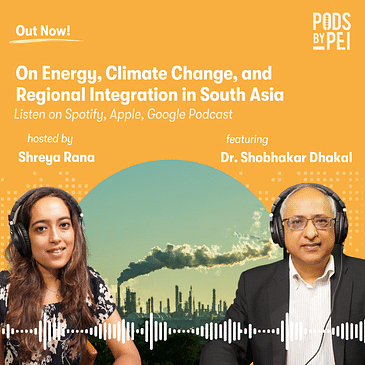ABOUT THE EPISODE
#Ep.054
Energy, climate change, and regional integration are interconnected and interdependent in many ways. The production and consumption of energy significantly contribute to climate change, with fossil fuels being major culprits. Transitioning to cleaner and renewable energy sources is crucial for mitigating climate change. In this regard, regional integration is vital in addressing energy and climate change challenges. It enables countries to collaborate on renewable energy development, share resources, establish interconnections, and create integrated energy markets. Regional cooperation is essential for adapting to and mitigating shared climate change impacts. It also enhances energy security by diversifying energy sources and reducing dependence on a single supplier. Additionally, regional integration promotes policy harmonization, collaboration, and clean energy trade. By working together, countries can maximize their efforts toward achieving a sustainable, low-carbon future.
In this episode, PEI colleague Shreeya Rana sits with Dr. Shubhakar Dhakal to discuss South Asia’s Energy Scenario. The two discuss the current status of regional integration efforts to tackle climate change and the role of China and India in the Region.
Shobhakar Dhakal currently serves as the Vice President for Academic Affairs at the Asian Institute of Technology in Thailand. His expertise lies in energy policy, climate change mitigation, policy modeling, and analysis. Dhakal has actively contributed to the international scientific community as the Coordinating Lead Author for the Nobel Prize-winning IPCC's 5th Assessment Report on Human Settlements, Infrastructure, and Spatial Planning. He was also a member of the author group involved in developing the recent UNEP-led global scientific assessment titled "Making Peace with Nature,"




